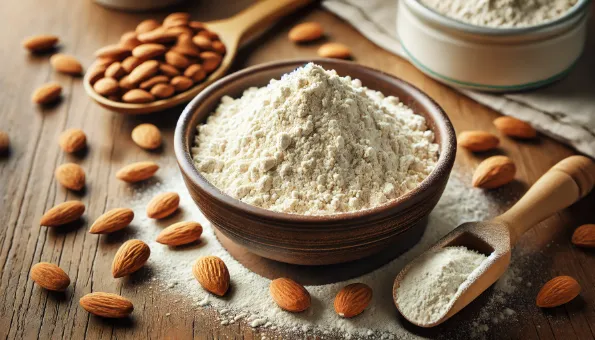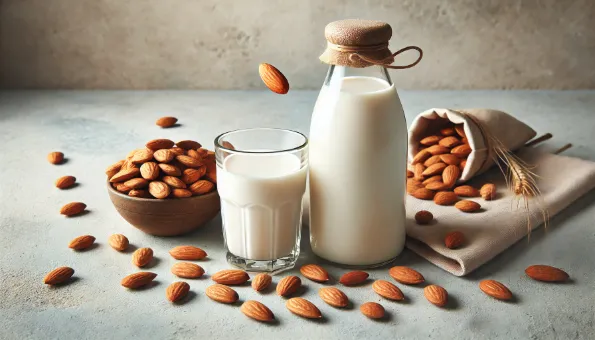Almonds: Crunchy, Heart-Healthy Power Snack
Nutrient-dense nuts packed with vitamin E, magnesium, healthy fats and plant protein—great for satiety and heart health.

What Are Almonds?
Almonds are the **edible seeds** of the almond tree. They can be eaten raw, roasted, sliced, or processed into **almond butter, milk or flour**. Mild, slightly sweet flavor makes them versatile in sweet and savory dishes.
Nutrition per 28 g (about 23 almonds)
**~160 kcal**, **6 g protein**, **14 g fat** (mostly monounsaturated), **6 g carbs**, **3.5 g fiber**, **vitamin E (~7.3 mg)**, **magnesium**, calcium, and antioxidants.
Health Benefits
- **Heart health:** monounsaturated fats and vitamin E support cardiovascular health.
- **Satiety:** protein + fiber keep you full longer.
- **Antioxidants:** vitamin E protects cells.
- **Blood sugar control:** may help reduce post-meal spikes.
Possible Downsides
- **Calorie-dense:** over-snacking can lead to excess calories.
- **Oxalates:** may affect kidney stone formers.
- **Allergy risk:** common tree nut allergen—avoid if allergic.
How to Use
- Snack on a **small handful**.
- Add to **oatmeal, yogurt, granola, salads**.
- Use **almond flour** in gluten-free baking.
- Blend into **smoothies** or make **homemade almond milk**.
Tip
Soak overnight for softer texture and better digestibility. Store in an airtight container to prevent rancidity.
- 1. Almonds
Almonds – jestive sjemenke badema; jedu se sirove, pečene ili kao maslac/mlijeko; bogat izvor vitamina E, zdravih masti i proteina








